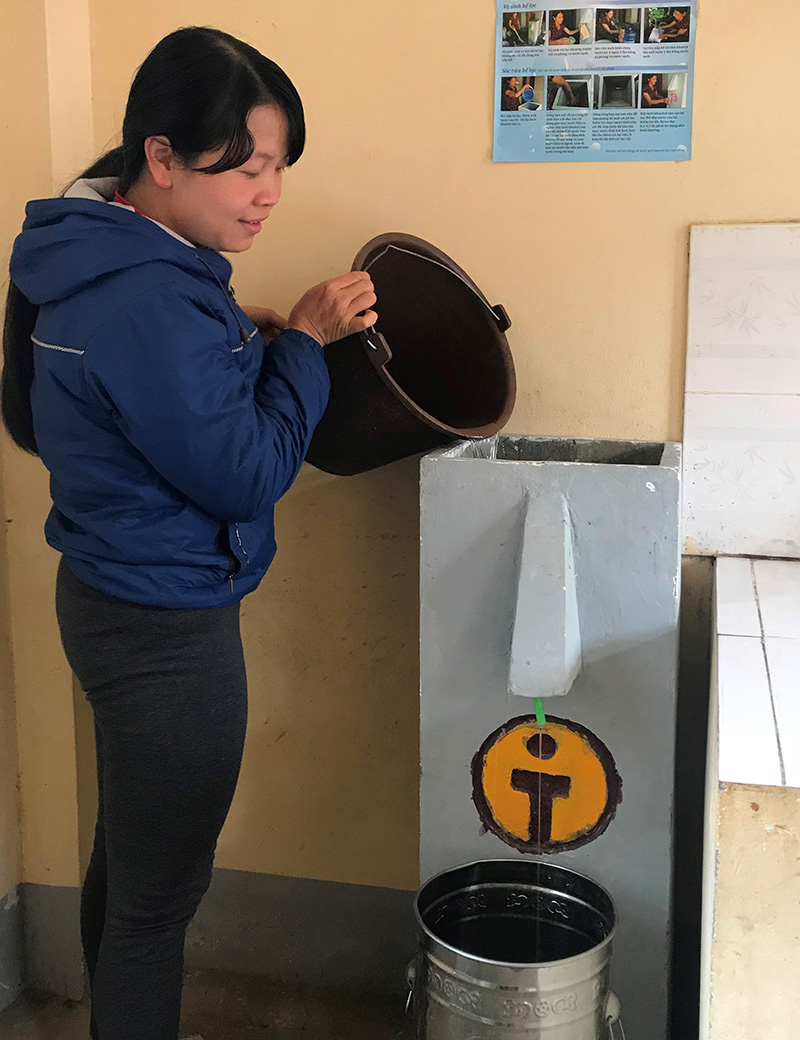Stories of Change

Teacher Thao demonstrates how to use the biosand filter.
CWS helps remote communities across Vietnam use biosand filters. In January 2018, 310 people near Hanoi participated in sessions to learn more about biosand filters.
“The water becomes smelly and dirtier when it rains”
Fifty very young children spend their whole day at a small satellite kindergarten in the remote mountain village of Na Dinh in Vietnam. These children spend their days learning, having meals and playing while their parents are working.
Some time back, I met with Teacher Ha Thi Thao – who is from another province and had been teaching in Na Dinh for two years – when I visited the school.
Teacher Thao told me that the school was using mountain stream water for drinking and cooking, and she said she was concerned about the quality of the water. The water did look unclean; it was very cloudy. Teacher Thao also told me that the teachers put water in plastic buckets and leave it for some time for the dirt to become sediment and sink to the bottom before they used it to drink and cook.
Still, Thao believes that, in the long run, this method is not good for her children’s health. Showing me the school water tank, she added, “The water becomes smelly and dirtier when it rains.”
I knew that CWS could help. I took the opportunity to introduce Teacher Thao to a biosand water filter, which can help address her concerns. Visiting Na Dinh again, I am happy to know that all the teachers are pleased with the filtered water, which is crystal clear – and odorless! Also, parents who came to the kindergarten to help teachers cook lunch for the children asked about the biosand filter and how it worked … and some said they would want to use it for their families, too. So, a new phase of improving water and health is underway, and CWS is happy to help!
Story written by Tran Van Thang, CWS Field Officer, Than Uyen district, Vietnam.
